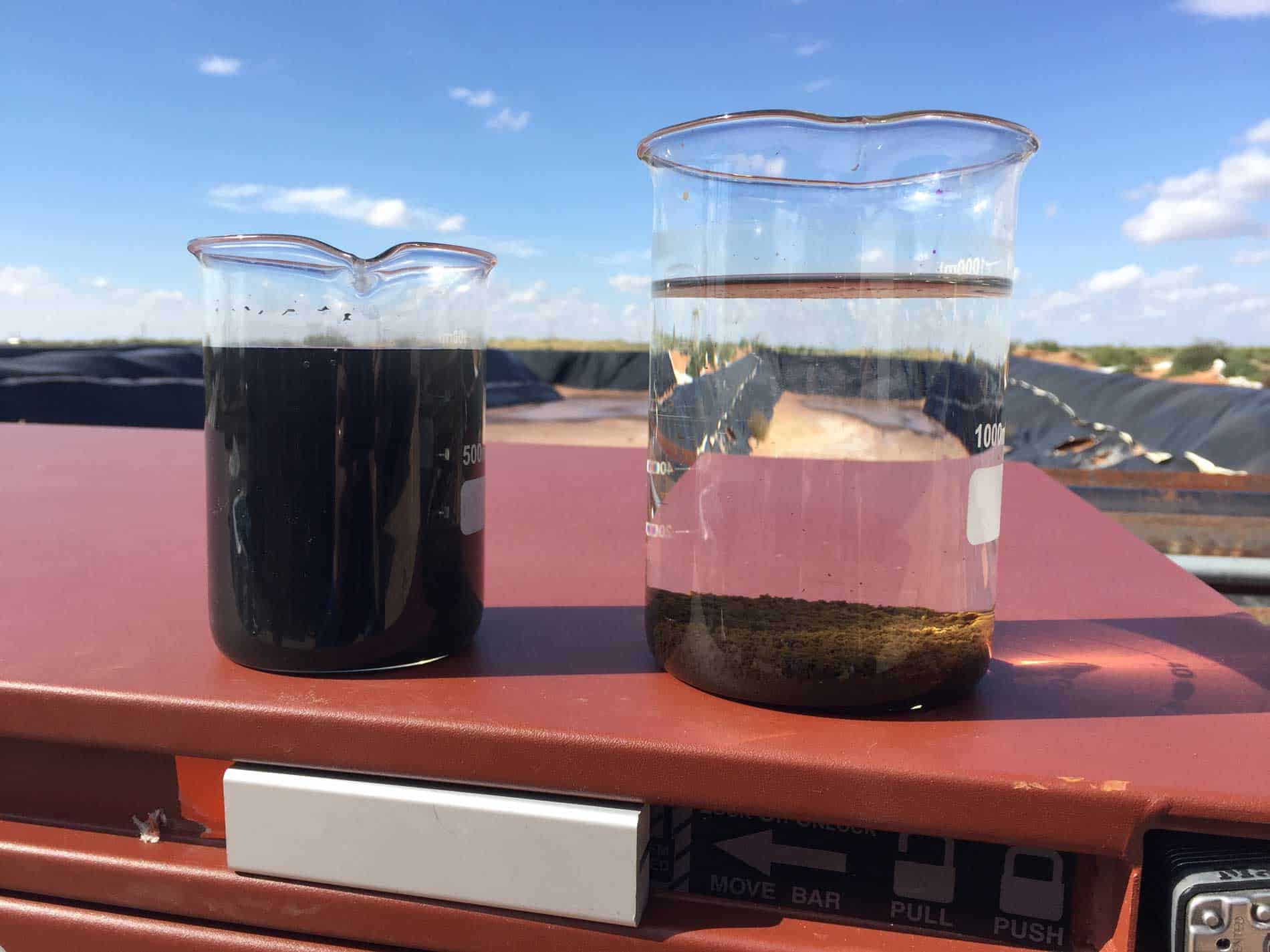GOST 4389 Carbonate Hardness in Produced Water Test
The GOST 4389 standard specifies the method for determining carbonate hardness (also known as alkalinity) in produced water. This test is particularly critical in the oil and gas sector, where the quality of produced water can impact downstream processes such as water reuse and injection into reservoirs.
Produced water, a byproduct of oil and gas extraction, contains various salts and minerals dissolved from underground formations. The carbonate hardness measurement provides insights into the buffering capacity of the water, which is essential for ensuring that water treatment processes are optimized. This test helps in managing the pH levels to avoid corrosion in pipelines and equipment.
The procedure outlined by GOST 4389 involves titration using a strong acid (such as sulfuric or nitric acid) and a phenolphthalein indicator. The endpoint of the titration is reached when all the bicarbonate ions have been converted to carbonate, and further addition of acid does not change the pH. This test ensures compliance with international standards for water quality in oil and gas operations.
Our laboratory adheres strictly to GOST 4389 methodologies ensuring accurate, reproducible results. We use calibrated titration equipment and standard solutions to achieve precise measurements. Our team of experts employs advanced analytical techniques to ensure that the test is conducted under controlled conditions, thereby providing reliable data for decision-making.
Compliance with this standard is crucial in oil and gas operations where produced water management plays a significant role. Accurate carbonate hardness testing helps operators understand the chemical composition of their produced waters better, leading to more informed decisions regarding water treatment processes.
Scope and Methodology
The scope of our GOST 4389 carbonate hardness in produced water test covers the analysis of produced water samples from oil and gas operations. The primary focus is on determining the level of carbonate hardness, which indicates the buffering capacity of the water.
- Sample Collection: Samples are collected from various points within the production facility to ensure a representative sample.
- Preparation: Once received at our laboratory, samples undergo initial preparation including filtration and pH adjustment if necessary.
- Titration Process: The titration process involves adding a standardized solution of acid until the endpoint is reached. This step ensures accurate measurement of the carbonate hardness.
- Data Analysis: After completing the titration, we analyze the results to determine the carbonate hardness level in the produced water sample.
Our methodological approach ensures that all tests are conducted under controlled conditions, adhering strictly to GOST 4389 standards. This guarantees accurate and reliable results, which are essential for effective water management in oil and gas operations.
Industry Applications
- Pipeline Corrosion Prevention: Understanding carbonate hardness helps operators choose the right corrosion inhibitors to protect pipelines from degradation.
- Water Treatment Optimization: Carbonate hardness data informs water treatment processes, optimizing chemical dosages for reuse and injection purposes.
- Reservoir Management: Accurate testing of produced water allows for better management of reservoirs by understanding the composition of the fluids being injected back into them.
- Emission Control: By monitoring carbonate hardness, operators can adjust their processes to minimize emissions and environmental impact.
In summary, GOST 4389 testing is vital for optimizing water management in oil and gas operations. It ensures that produced waters are handled efficiently, contributing to overall operational efficiency and sustainability.
Customer Impact and Satisfaction
Our GOST 4389 carbonate hardness in produced water test has a significant impact on our customers. By providing accurate and reliable data, we help them make informed decisions that lead to enhanced operational efficiency.
- Operational Efficiency: Accurate carbonate hardness testing ensures that water treatment processes are optimized, reducing downtime and increasing overall productivity.
- Sustainability: Our tests contribute to sustainable practices by helping operators minimize their environmental footprint. This aligns with the broader goals of energy companies to operate more responsibly.
- Compliance: Adherence to international standards like GOST 4389 ensures that our customers are compliant with regulatory requirements, reducing the risk of non-compliance penalties.
- Cost Savings: By optimizing water management processes and preventing issues such as pipeline corrosion, we help our clients achieve significant cost savings over time.
We pride ourselves on delivering high-quality services that exceed customer expectations. Our commitment to accuracy, reliability, and timely delivery ensures that our customers receive the information they need to make strategic decisions for their operations.





